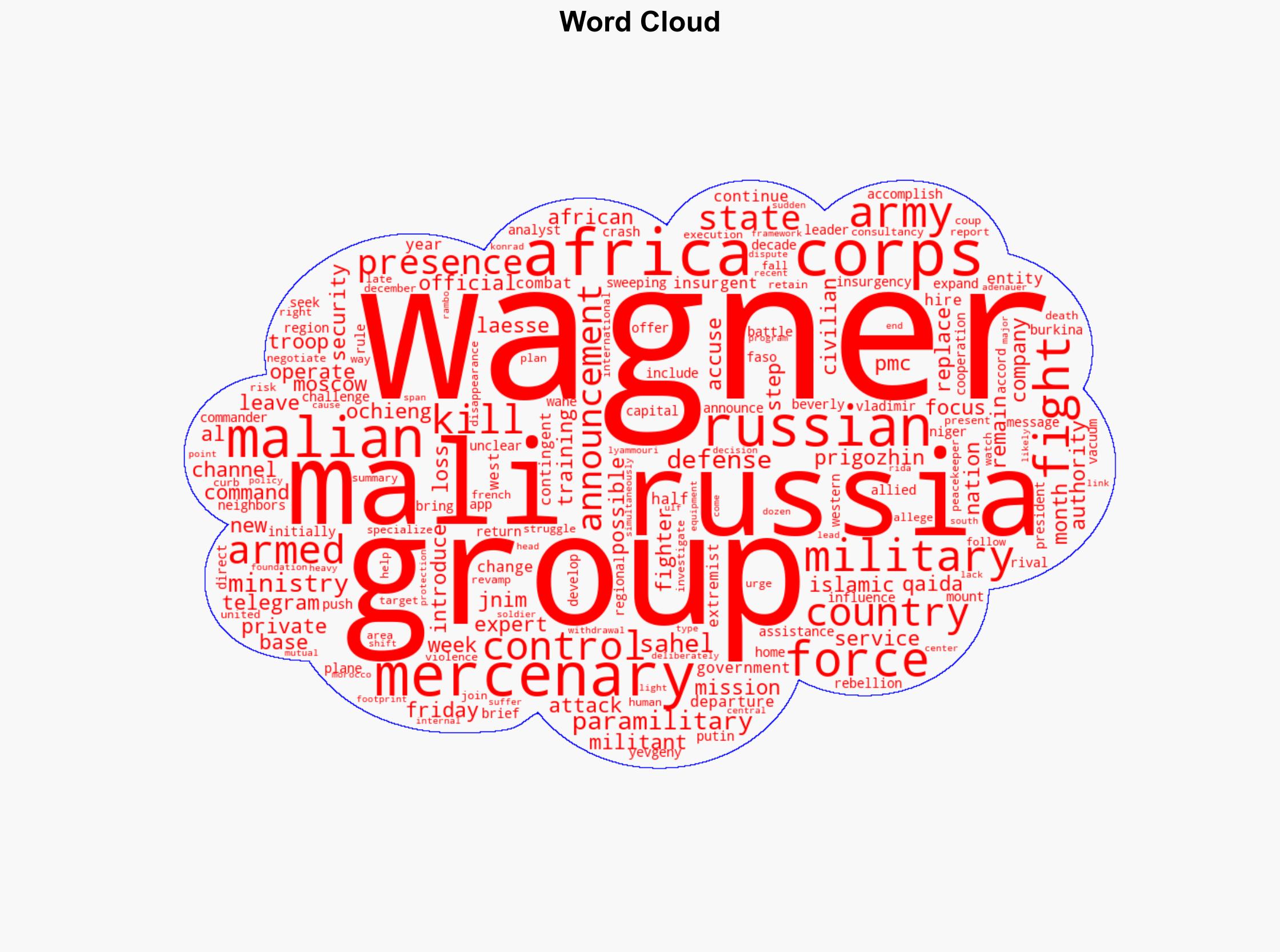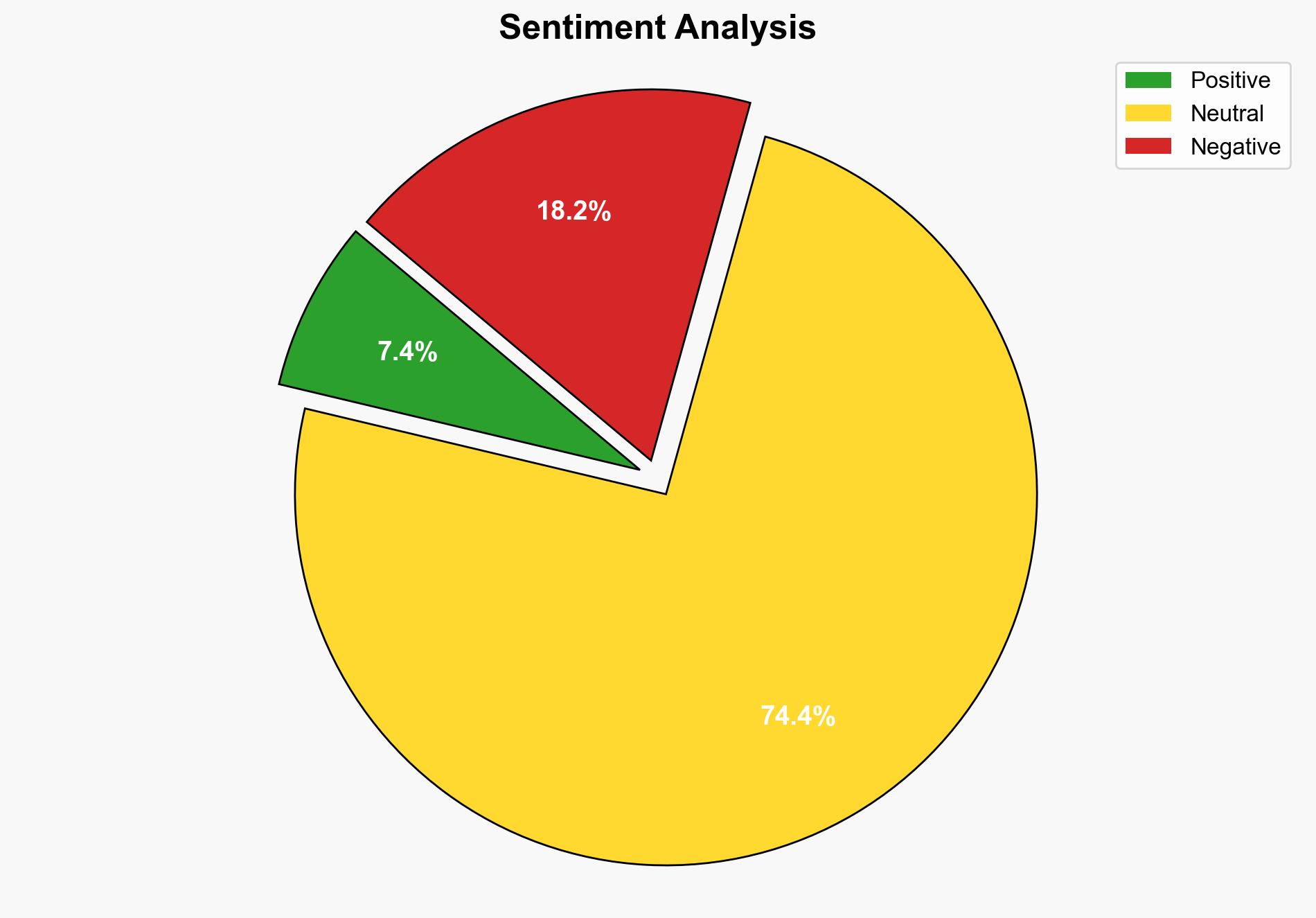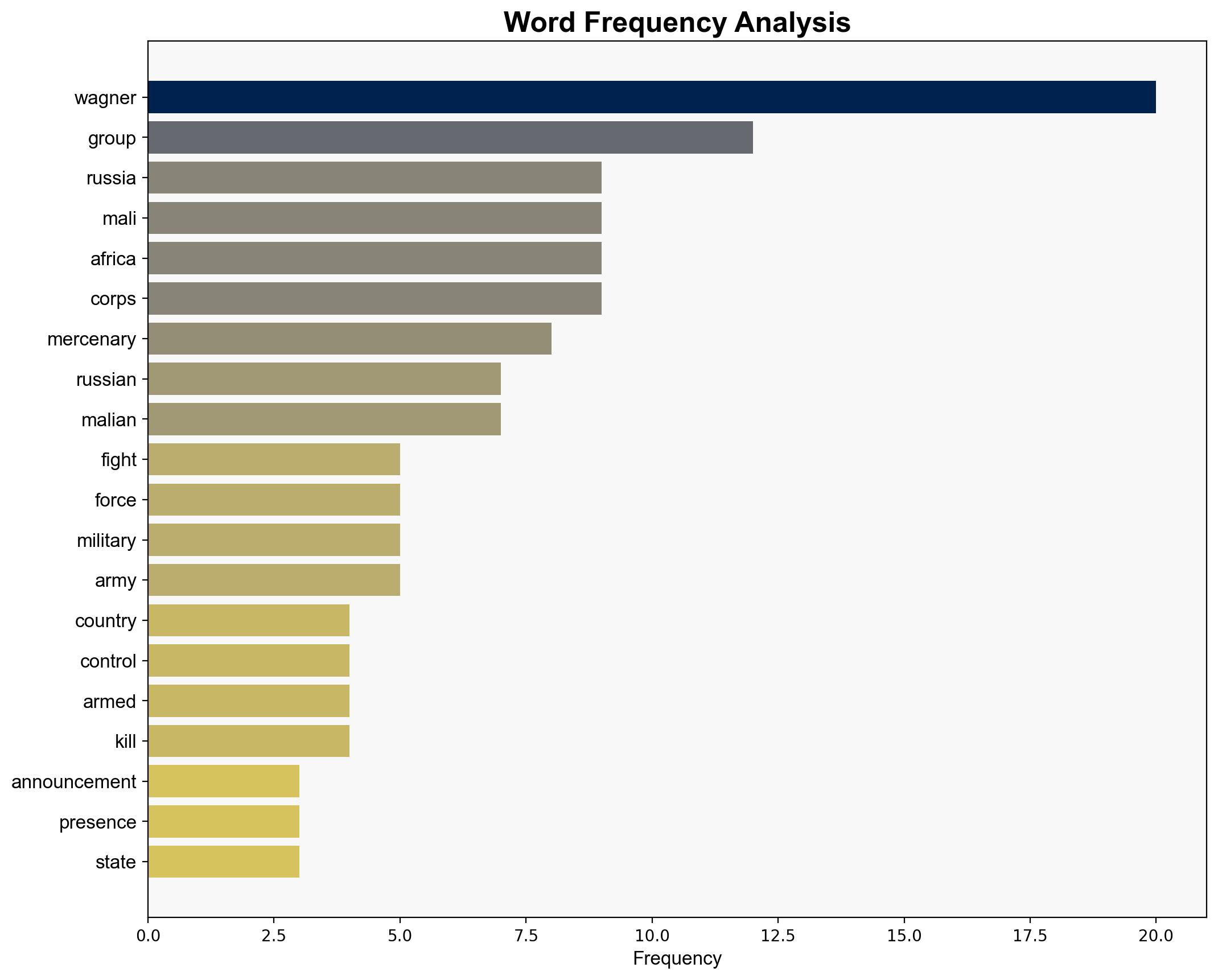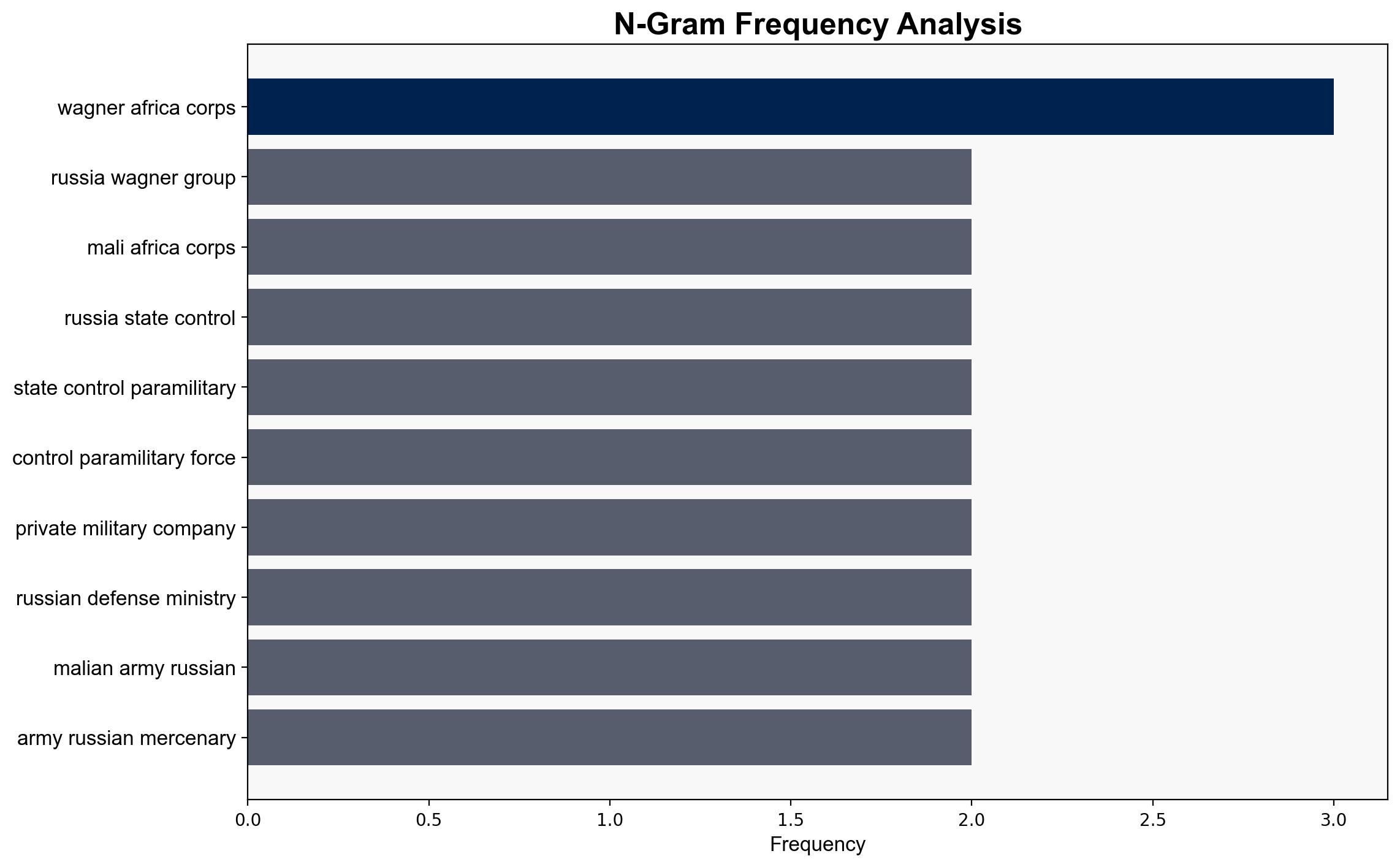Wagner Group says it is leaving Mali but Africa Corps will remain – CBS News
Published on: 2025-06-07
Intelligence Report: Wagner Group says it is leaving Mali but Africa Corps will remain – CBS News
1. BLUF (Bottom Line Up Front)
The Wagner Group, a Russian-backed private military company, has announced its withdrawal from Mali after a six-month engagement against Islamic extremist insurgents. Despite this departure, Russia plans to maintain a military presence in the region through the Africa Corps, under the direct command of the Russian Defense Ministry. This strategic shift suggests a reorganization of Russian paramilitary operations in West Africa, potentially altering regional power dynamics and impacting ongoing counter-insurgency efforts.
2. Detailed Analysis
The following structured analytic techniques have been applied to ensure methodological consistency:
Causal Layered Analysis (CLA)
At the surface level, the withdrawal of Wagner from Mali is a tactical move following significant losses against insurgent groups linked to Al-Qaida. Systemically, this withdrawal reflects a strategic recalibration by Russia to sustain influence in the region through the Africa Corps. The worldview underpinning this move is Russia’s intent to fill the power vacuum left by waning Western influence. Mythically, the narrative of Russian resilience and adaptability in foreign policy is reinforced.
Cross-Impact Simulation
The departure of Wagner may destabilize Mali’s security situation, potentially affecting neighboring countries like Burkina Faso and Niger, which are also battling insurgencies. Economic dependencies on Russian military support could increase regional reliance on Moscow, shifting alliances and impacting local economies.
Scenario Generation
Best Case: Africa Corps effectively supports local forces, stabilizing the region and curbing insurgent activities.
Worst Case: The transition leads to a power vacuum, escalating violence and regional instability.
Most Likely: A period of adjustment with potential localized conflicts as Africa Corps establishes its role.
Narrative Pattern Analysis
The ideological narrative of Russian intervention as a stabilizing force is juxtaposed with accusations of human rights abuses by Wagner, complicating the perception of Russian involvement in the region.
3. Implications and Strategic Risks
The shift from Wagner to Africa Corps introduces risks of operational disruption and potential gaps in security coverage. The reorganization may also lead to increased insurgent activities during the transition period. Politically, this move could strain relations with Western powers concerned about Russian influence in Africa. Economically, the dependency on Russian military aid could affect regional autonomy.
4. Recommendations and Outlook
- Monitor the transition closely to assess the effectiveness of Africa Corps in maintaining stability.
- Engage with regional partners to support capacity-building initiatives and reduce reliance on external military forces.
- Develop contingency plans for potential escalation of violence during the transition period.
- Scenario-based projections suggest preparing for a range of outcomes, with emphasis on diplomatic engagement to mitigate worst-case scenarios.
5. Key Individuals and Entities
Yevgeny Prigozhin, Rida Lyammouri, Beverly Ochieng, Ulf Laesse
6. Thematic Tags
national security threats, cybersecurity, counter-terrorism, regional focus





